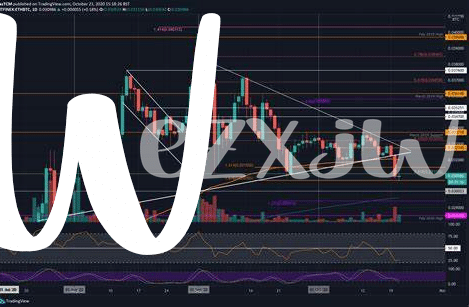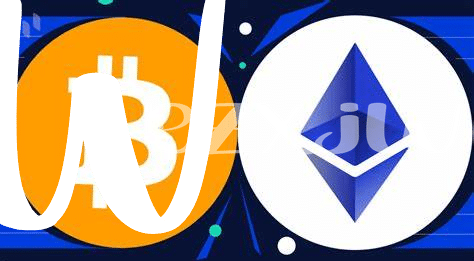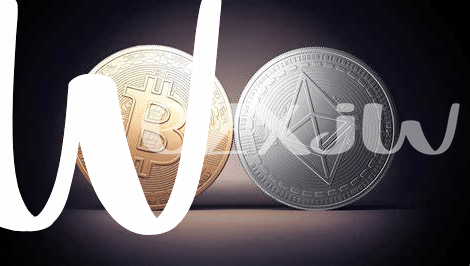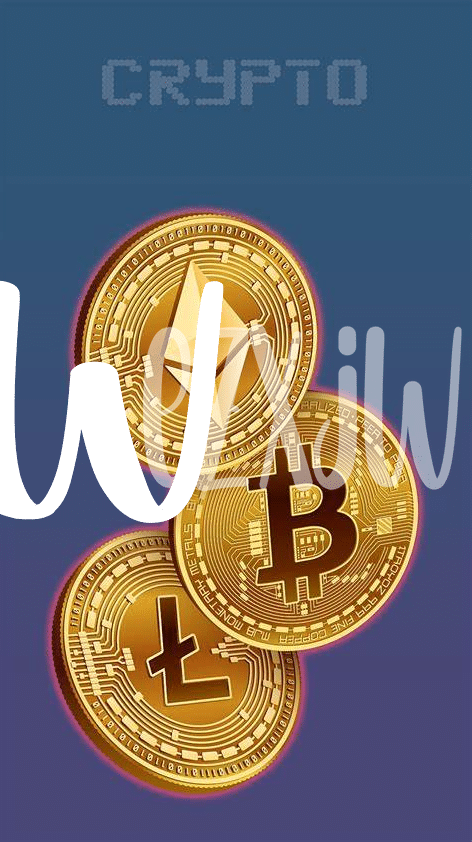🚀 Setting the Stage: Bitcoin and Ethereum Explained

Imagine stepping into a world where the traditional money in your pocket starts to feel a bit… outdated. That’s where Bitcoin and Ethereum enter the picture, two giants in the world of cryptocurrency, each with its own unique flavor. Bitcoin, the first of its kind, burst onto the scene as a digital currency, a way to say “see ya!” to banks and take control of your own money. It’s like having a digital piggy bank that no one but you can touch. On the other side, there’s Ethereum, which isn’t just about sending and receiving coins. Think of Ethereum like a wizard’s spellbook, where instead of casting spells, you’re creating smart contracts. These contracts automatically do stuff when certain conditions are met, like guaranteeing your friend gets the keys to your car once they pay you. Both of these digital wonders are built on blockchain technology, a super secure way of keeping records that’s about as hard to hack as breaking into a dragon’s den.
| Feature | Bitcoin | Ethereum |
|---|---|---|
| Purpose | Digital Currency | Smart Contracts Platform |
| Launch Year | 2009 | 2015 |
| Key Trait | Store of Value | Programmable Transactions |
So, whether you’re dipping your toes into the digital currency pool with Bitcoin or casting financial spells with Ethereum, you’re participating in a financial revolution that’s redefining how we think about money.
💡 Differences between Bitcoin and Ethereum’s Technology
At the heart of both Bitcoin and Ethereum lies the revolutionary technology known as blockchain, but the way they use this technology sets them worlds apart. Think of Bitcoin as the original pioneer; its blockchain is like a one-way street designed primarily for sending and receiving digital currency. It’s straightforward and robust, focusing on secure transactions and financial stability. On the other hand, Ethereum takes things several notches higher. Its blockchain is more like a bustling highway, supporting not just transactions but also complex applications. This is possible thanks to Ethereum’s introduction of smart contracts, which are basically self-executing contracts where the terms are directly written into code.
The real magic of Ethereum’s technology becomes apparent through these smart contracts, enabling a multitude of applications beyond simple transactions – everything from games to decentralized finance platforms. It’s like Ethereum handed everyone the building blocks to create anything they could imagine in the digital world. Meanwhile, Bitcoin keeps its crown as the digital version of gold, focusing on being a store of value. Both have their unique strengths, but their differences highlight the diverse potential of blockchain technology in shaping the future of finance. For those interested in the nuances of cryptocurrency investments, particularly in Ethereum’s opportunities, this https://wikicrypto.news/decoding-bitcoins-volatility-what-investors-need-to-know piece offers insightful perspectives.
🌍 Impact on the Global Financial System

Imagine opening your phone and, with a few taps, lending money or investing in a venture halfway around the globe. That’s the kind of future we’re talking about when we dive into how Bitcoin and Ethereum might reshape our financial world. Bitcoin, with its rock-solid reputation, functions somewhat like digital gold, a safe place to park money in the digital age. Now, Ethereum enters the picture with a magic key called ‘smart contracts,’ making it not just a currency but a whole new way to make agreements and do business.
This is where the magic happens. Ethereum’s smart contracts are like self-executing contracts; terms between buyer and seller are directly written into lines of code. It’s like setting up a deal that automatically completes once you’ve done your part, without the need for a middleman. And this isn’t just neat; it’s revolutionary. These technologies could democratize finance, making it easier and cheaper to send, spend, and invest money, regardless of where you are in the world or how much you have. This is a world where financial control shifts from big banks and governments to individuals, empowering people in ways we’re just starting to imagine.
🛠️ How Ethereum’s Smart Contracts Change the Game

Imagine a world where you can lend out your bike to a neighbor and get paid automatically without needing to chase them down for money. That’s the kind of change Ethereum’s smart contracts are bringing into finance. Unlike traditional contracts, which involve a lot of paper and need people to oversee them, smart contracts are like self-operating computer programs that automatically execute transactions when certain conditions are met. For example, if you and your friend bet on a football match, a smart contract can automatically transfer the bet amount to the winner’s account after the game ends, without either of you needing to do anything. This tech is not just about bets and games; it’s transforming how businesses operate, making transactions faster, cheaper, and more reliable.
This leap in technology is opening up new avenues where Ethereum can shine. From creating decentralized finance (DeFi) platforms to revolutionizing how we think about owning and exchanging assets, Ethereum is at the forefront. For those interested in joining this financial revolution, discovering the best place to stake Ethereum could be your first step into a world where finance operates with unparalleled efficiency and transparency. Ethereum’s adaptability to a myriad of uses beyond just transactions, like in the functioning of decentralized apps (DApps), positions it as a pivotal player in the future of finance, sewing the seeds for a system where money moves in ways we might have only imagined in science fiction.
💸 Bitcoin as Digital Gold Vs. Ethereum’s Utility
Imagine a world where digital money doesn’t just sit in your digital wallet like old coins in a pirate’s chest, but instead, can do a whole bunch of useful things. That’s where Bitcoin and Ethereum really start to show their colors. Bitcoin, often hailed as ‘digital gold,’ is like having a shiny, precious coin that gets more valuable over time. People buy it, hold onto it, and hope its value skyrockets. On the flip side, Ethereum is like a swiss army knife for the digital age. It’s not just about holding onto something valuable; it’s about what you can do with it. Ethereum’s platform lets people create smart contracts, which are like automated agreements that do what they’re supposed to do all by themselves once certain conditions are met. This key difference in utility is what sets Ethereum apart, making it not just a form of digital money, but a tool for building all sorts of applications that can change how we do things on the internet.
| Feature | Bitcoin | Ethereum |
|---|---|---|
| Primary Use | Digital Gold | Smart Contracts & Applications |
| Value Proposition | Store of Value | Utility & Versatility |
| Scarcity | Limited Supply | Annual Cap on Issuance |
By tapping into these distinctive uses and advantages, both Bitcoin and Ethereum carve out important but very different roles in the future of finance.
🔮 Predicting the Future: Which Holds More Promise?

Peering into the crystal ball to forecast whether Bitcoin or Ethereum holds more promise is akin to comparing the endurance of gold with the versatility of a Swiss Army knife. On one hand, Bitcoin, often likened to ada meaning digital gold, stands as a titan of value storage, its worth akin to a steady lighthouse in the choppy seas of finance. Its scarcity and widespread recognition lend it resilience, attracting investors like moths to a comforting, reliable flame. Ethereum, by contrast, is the ever-evolving toolkit, brimming with potential, thanks to its smart contracts and Decentralized Applications (DApps). These features paint Ethereum not just as a currency, but as a platform for innovation, where financial services, supply chain management, and even voting systems can be revolutionized. 🚀💼
While Bitcoin promises stability, Ethereum invites transformation. The future seems to incline towards ecosystems that support both robust financial instruments and broad utility. In the end, it may not be a question of one or the other, but how each adapts and evolves to meet our changing world. 🌐🔍
